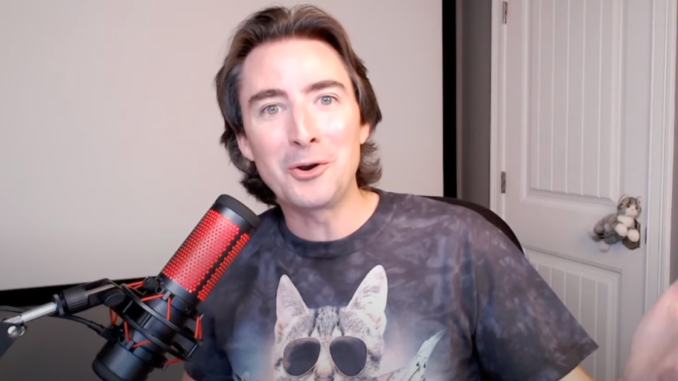We do the research, you get the alpha!
Get exclusive reports and access to key insights on airdrops, NFTs, and more! Subscribe now to Alpha Reports and up your game!
Go to Alpha Reports
In the last four days alone, meme stock influencer Keith Gill, aka Roaring Kitty, has lost over $350 million on his GameStop (GME) position.
You wouldn’t tell by his demeanor. As GME continued to shed value on Monday, Gill mocked his own fortunes, posting memes on Twitter belittling his financial status. And as the price fell in real time during his Friday livestream, his first in three years, he wore fake bandages and had his arm in a splint while acting injured.
But the hits taken over the last few days by the world-famous stock trader are no joke. Just last Thursday, Gill was riding high with over $382 million in profit (on paper, at least) from options placed on GME, according to screenshots of an ETrade account he posted on Reddit.
Then, a dismal quarterly earnings report from GameStop sent the stock spiraling. On Friday, Gill lost over $235 million on his GME position. The bloodshed continued on Monday, when GME slipped an additional 12%, after plummeting 40% in the hours just before the weekend.
GME closed at $24.83 on Monday afternoon. To give some sense of the loss: In after-hours trading on Thursday evening, the stock had climbed as high as $61.27.
The price movement has wiped out nearly all of Gill’s recent gains. By Monday evening, the influencer reported he was still about $31 million in the black—meaning he’s lost about $351 million in profit since last week.
It remains unclear whether Gill’s entire GME pot may also be in legal jeopardy.
Last week, reports surfaced that regulators are investigating Gill over manipulation concerns for a series of cryptic (and not so cryptic) tweets over the last few weeks, which have sent GME and other meme stocks and associated crypto tokens soaring. Even ETrade itself is reportedly considering banning him as a user.
The saga is somewhat reminiscent of the famed 2021 short squeeze of GME stock by retail traders, which Gill architected. In that case, the U.S. Securities and Exchange Commission investigated the matter, but ultimately determined that no market manipulation had occurred.
Edited by Andrew Hayward
Disclaimer
The views and opinions expressed by the author are for informational purposes only and do not constitute financial, investment, or other advice.
Daily Debrief Newsletter
Start every day with the top news stories right now, plus original features, a podcast, videos and more.







Be the first to comment